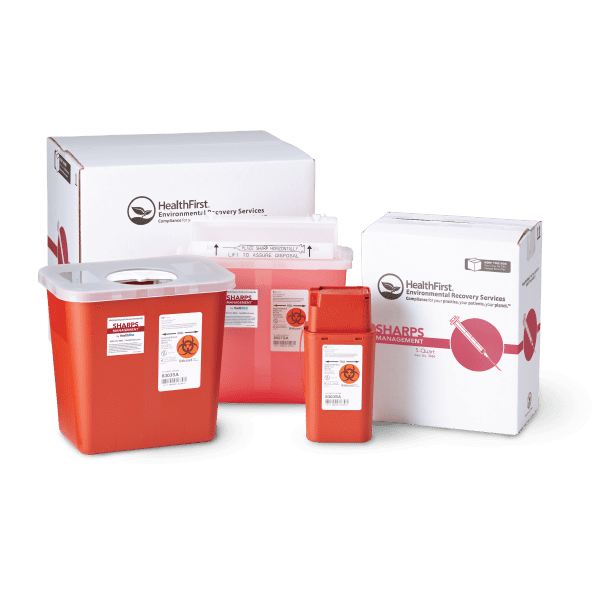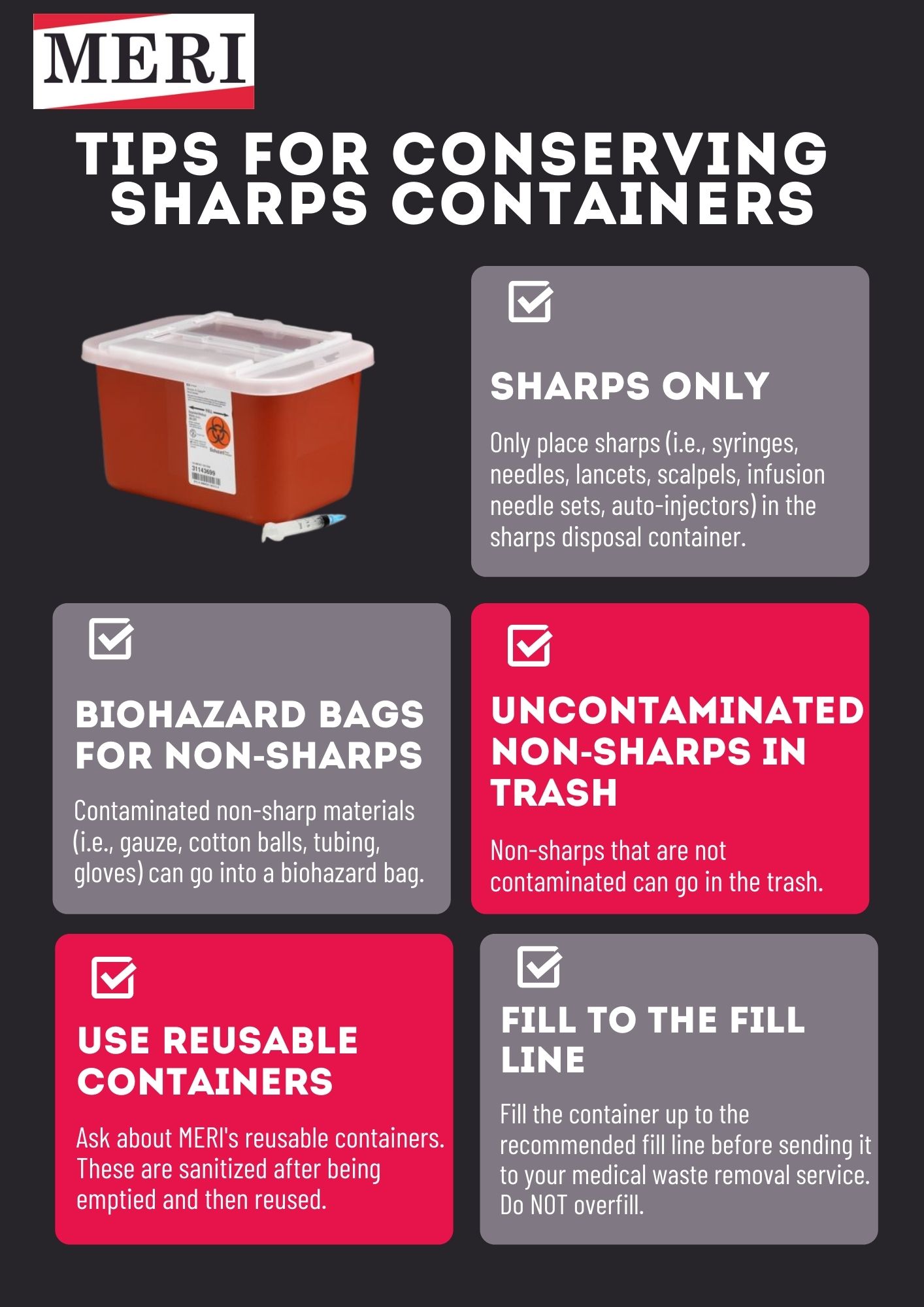Local Commitment: Your Community's Leading Medical Waste Removal Near Me
Local Commitment: Your Community's Leading Medical Waste Removal Near Me
Blog Article
The Value of Appropriate Garbage Disposal Practices
From the effects of incorrect waste disposal on our setting to the long-term implications for future generations, the importance of embracing lasting waste management methods can not be overemphasized. By checking out the environmental effect of reckless waste disposal, the benefits of recycling campaigns, and the importance of neighborhood interaction in waste decrease initiatives, a deeper understanding of why proper waste disposal methods are important arises.
Ecological Impact of Improper Disposal
Inappropriate disposal of waste postures a significant risk to the environment because of its harmful effects on ecosystems and human wellness. When waste is not appropriately taken care of, it can result in contamination of the water, soil, and air, triggering harm to different plant and pet species. click here. Chemicals and toxins from poorly disposed waste can leak into the ground, polluting groundwater resources and affecting the health of both wildlife and human beings
Moreover, the accumulation of waste in garbage dumps creates greenhouse gases like methane, adding to environment adjustment and worldwide warming. Incorrect disposal practices likewise lead to littering, which not only weakens the aesthetic worth of the environment however can additionally hurt wildlife through ingestion or complication.
To mitigate these ecological effects, it is important for neighborhoods and individuals to adopt proper waste disposal techniques such as recycling, composting, and accountable contaminated materials disposal. By taking these steps, we can aid shield ecosystems, maintain natural deposits, and guard human wellness for future and existing generations.
Advantages of Recycling Programs
Routinely joining recycling programs provides numerous advantages for both the setting and society in its entirety. One of the essential benefits of recycling is the conservation of natural deposits. By recycling materials such as paper, glass, plastic, and metal, much less resources require to be drawn out from the planet, leading to decreased deforestation, mining, and drilling activities. This preservation of sources not just aids in preserving eco-friendly equilibrium but likewise adds to sustainable development.
Additionally, recycling plays a critical role in minimizing energy intake and greenhouse gas discharges. The production of items from recycled materials generally needs less power compared to making from virgin sources - medical waste disposal. Because of this, the carbon footprint connected with the manufacturing procedure is considerably decreased, aiding in the battle versus climate modification
Furthermore, reusing programs develop job possibilities in the recycling industry, advertising financial growth and social welfare. By motivating the recycling and reuse of products, these programs support a circular economy that decreases waste generation and makes best use of resource effectiveness, eventually causing a cleaner, greener future for generations to find.
Contaminated Materials Management Standards
Executing reliable dangerous waste management guidelines is critical for lessening environmental and wellness risks connected with the incorrect disposal of hazardous products - click here. Proper handling, treatment, and disposal of contaminated materials are vital to avoid contamination of soil, water resources, and air
One trick standard is appropriate labeling of contaminated materials containers to ensure safe handling and transport. Additionally, facilities need to comply with rigorous storage needs to stop leaks, spills, or accidents that might endanger human health and wellness and the atmosphere. Routine training programs for workers on contaminated materials management practices are additionally important to guarantee conformity with guidelines and promote a society of safety and security.
In addition, dangerous waste must be segregated based on its buildings to avoid chain reactions that can result in harmful scenarios. Implementing an extensive waste radar can assist check the movement of dangerous products from generation to disposal, guaranteeing transparency and responsibility. By adhering to these guidelines faithfully, organizations and industries can contribute to a more secure and cleaner environment for future his explanation and present generations.
Neighborhood Participation in Waste Decrease
To efficiently address the ecological and wellness dangers connected with contaminated materials management, engaging the area in waste reduction efforts is paramount. Community participation plays a critical function in promoting sustainable waste management practices and cultivating a culture of environmental responsibility. By educating locals concerning appropriate waste partition, recycling, and composting methods, communities can considerably lower the amount of waste sent to land fills, thereby lessening environmental air pollution and saving natural deposits.
Community involvement in waste reduction programs additionally helps in increasing understanding concerning the significance of waste minimization and motivates individuals to embrace eco-friendly routines in their daily lives - medical waste removal service. Collaborative efforts between regional authorities, waste management business, and area members can cause the implementation of reliable waste reduction strategies customized to the certain demands of each neighborhood or community
Furthermore, neighborhood engagement fosters a sense of ownership and responsibility amongst residents, equipping them to take proactive steps towards minimizing waste generation and advertising a cleaner, much healthier environment for current and future generations. By interacting in the direction of usual waste reduction objectives, areas can make a substantial influence on minimizing the unfavorable results of inappropriate waste disposal methods.

Future of Sustainable Waste Practices
Standard waste disposal techniques, such as landfilling and incineration, are no longer lasting in the lengthy term due to their considerable ecological impacts. Relocating forward, the future of lasting waste methods lies in embracing a circular economy method, where sources are recycled, reused, or repurposed to minimize waste generation.
Technological innovations play a key function in shaping the future of lasting waste techniques. Advanced waste sorting and recycling technologies can help improve the effectiveness of waste management processes, allowing for the recuperation of valuable resources from waste streams. Furthermore, the fostering of naturally degradable materials and composting approaches can help in reducing the amount of natural waste finishing up in land fills, therefore mitigating greenhouse gas discharges.
In addition, advertising consumer awareness and education and learning on proper waste partition and disposal techniques is vital for driving behavior modification towards sustainability. By promoting a culture of waste recycling, reuse, and reduction, communities can jointly add to a cleaner and healthier atmosphere for future generations.

Verdict
Finally, correct garbage disposal practices are vital for lessening ecological effect and advertising sustainability. By applying reusing programs, taking care of contaminated materials properly, and encouraging area involvement in waste reduction initiatives, we can function in the direction of a cleaner and much healthier environment. It is essential for people, governments, and organizations to prioritize lasting waste methods for the future health of our planet.
.jpg)
From the effects of inappropriate waste disposal on our setting to the lasting implications for future generations, the significance of taking on sustainable waste administration methods can not be overemphasized. By exploring the environmental effect of careless waste disposal, the advantages of reusing efforts, and the significance of area interaction in waste reduction efforts, a deeper understanding of why appropriate waste disposal methods are vital arises.
By educating residents regarding proper waste partition, recycling, and composting techniques, communities can substantially decrease the amount of waste sent out to landfills, therefore decreasing environmental contamination and preserving all-natural resources. (click here)
Moving ahead, the future of sustainable waste techniques lies in accepting a circular economic situation strategy, where sources are recycled, recycled, or repurposed to reduce waste generation.
Advanced waste sorting and reusing innovations can help boost the performance of waste administration processes, enabling for the recovery of useful resources from waste streams.
Report this page